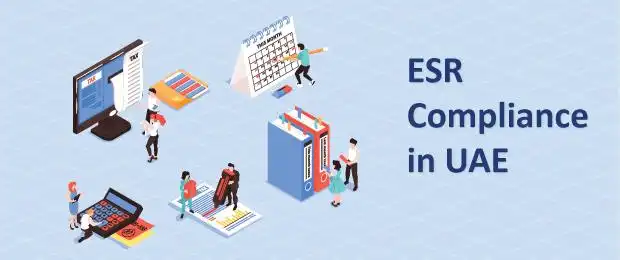Economic Substance Regulations (ESR) - Cabinet of Ministers Resolution No 31 of 2019 – was issued on 30th April 2019 as part of the UAE’s commitment as a member of the OECD Inclusive Framework. Subsequently, the UAE amended the ESR framework (vide Cabinet Resolution 57 of 2020) and updated its Guidance and Relevant Activities Guide (Ministerial Decision 100 of 2020). ESR requires all in-scope UAE entities to maintain an economic substance.
Annual compliance and key actions in ESR
The Economic Substance Regulations (ESR) related compliances became applicable in the United Arab Emirates in the year 2020. ESR compliance, in its purview, covers onshore and free zone legal entities. It is important for UAE based businesses to be familiar with two terms viz ‘relevant activity’ and ‘licensee’ as they are essential to ascertain applicability of ESR to a legal entity in the UAE. Another important concept under ESR is that of ‘exempted licensee’. Entities falling under the definition of exempted licensees (i.e., entities eligible to claim exemption from ESR) should maintain relevant supporting documentation to substantiate their ‘ESR exempt’ position. Based on recent experiences, we recommend all supporting documents are filed when an entity claims to be exempt under ESR regulations. Also, it is important to note that the coverage under the definition requires fulfilment of certain conditions which should be carefully evaluated before claiming such exemption. Professional advice should be sought in such matters.
Annual filing requirements (compliances) under ESR are:
1) Notification: To be filed within 6 months from the end of the relevant financial year (FY).
2) Report: File a report within 12 months from the end of the relevant FY.
Important due dates:
How to ensure you are ESR compliant
The first step towards ascertaining the coverage under ESR compliances requires an entity to firstly assess whether its business activities fall within the scope of the ESR and whether or not a relevant activity is being conducted by it during a particular financial year. This is a complex
exercise especially because the regulations currently cover 9 relevant activities and the authorities have clarified that a ‘substance over form’
approach needs to be adopted by UAE entities to ascertain whether they are covered under ESR or not. ESR guidance issued by the UAE Ministry of Finance discusses certain ESR tests which help in ascertaining the extent of economic substance demonstrated by UAE entities. Each of the ESR tests needs to be checked against factual information applicable to a financial year. For example, the directed and managed test discusses the number of meetings of the Board, physical presence of the Board members, detailed information, minutes of meetings, location of such meetings etc. Given the level of detailing involved, seeking professional guidance is a must, to approach ESR compliance.
Fines and penalties for ESR non-compliance
The Federal Tax Authority is the National Assessing Authority empowered to administer, assess and levy fines in respect of ESR compliances. Penalties can be imposed for various non-compliances listed in the table below:


